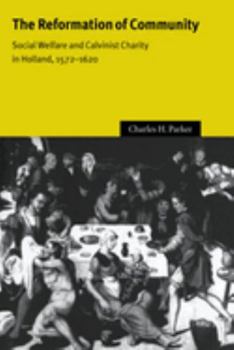The Reformation of Community
(Part of the Cambridge Studies in Early Modern History Series)
Select Format
Select Condition 
Book Overview
By the time of the Calvinist Reformation, the cities of Holland had established a very long tradition of social provision for the poor in the civic community. Calvinists however intended to care for their own church members, who were by definition 'within the household of faith', through the deaconate, a confessional relief agency. This book examines the relationship between municipal and ecclesiastical relief agencies in the six chief cities of Holland - Dordrecht, Haarlem, Delft, Leiden, Amsterdam and Gouda - from the public establishment of the Reformed Church in 1572 to the aftermath of the Synod of Dort. The author argues that the conflict between charitable organizations reveal competing conceptions of Christian community that came to the fore as a result of the Dutch Reformation. This is the first comparative study of poor relief in Holland, which contributes to our understanding of the Reformation throughout Europe.
Format:Hardcover
Language:English
ISBN:0521623057
ISBN13:9780521623056
Release Date:November 1998
Publisher:Cambridge University Press
Length:242 Pages
Weight:1.15 lbs.
Dimensions:0.8" x 6.2" x 9.0"
Customer Reviews
0 rating





